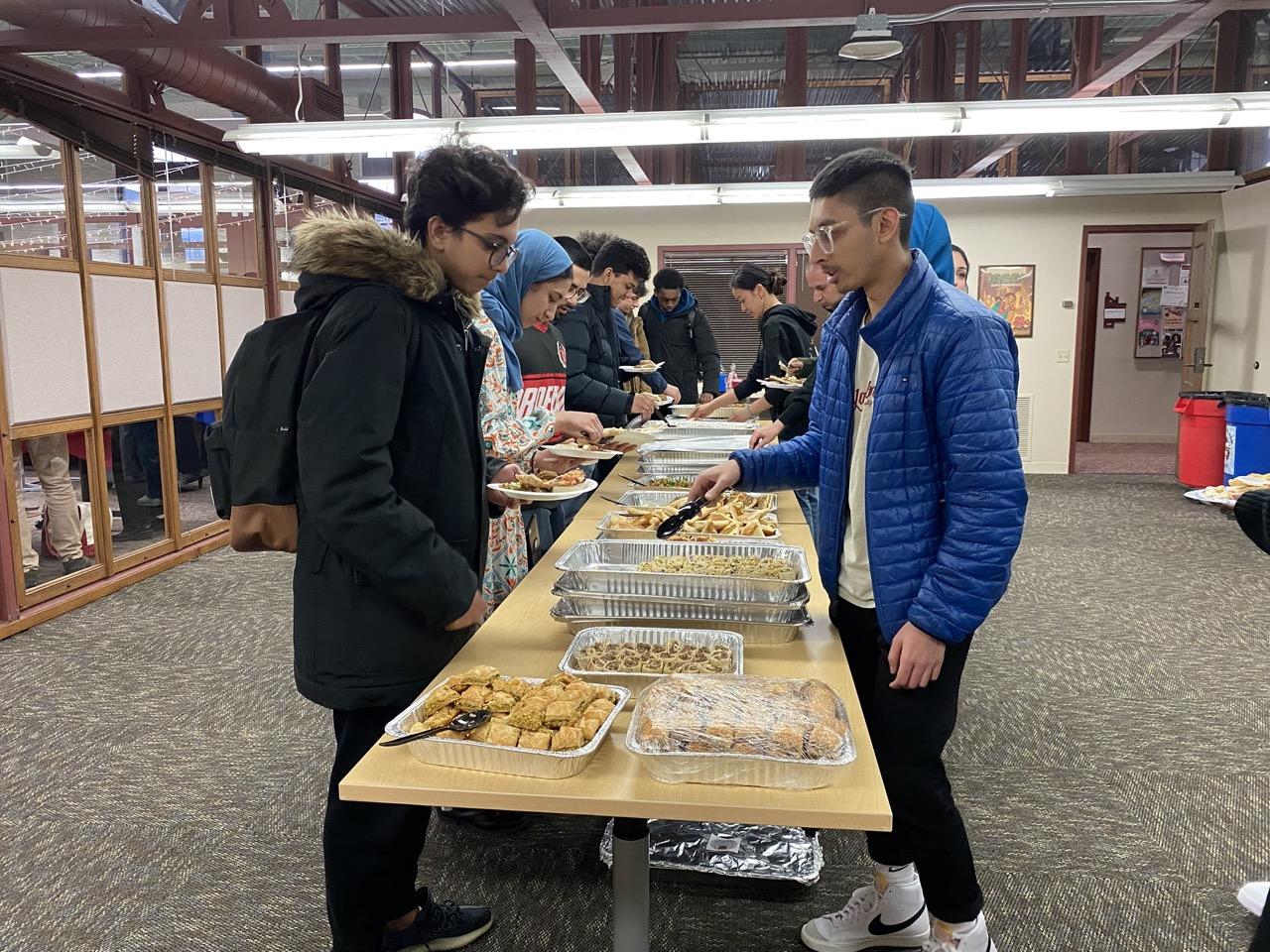University of Wisconsin students across campus are coming together to celebrate Ramadan, fostering community and worship at their home away from home.
Ramadan, which began Wednesday, is a holy time for those observing to fast from dawn till dusk for 30 days. This year Ramadan takes place from March 22 to April 21, 2023.
The Muslim Student Association and other campus Muslim organizations will provide dinners to students throughout Ramadan in various locations on campus, Muslim Student Association Sister’s Vice President Nusaybah Mallick said.
Contributions from individuals, mosques and other groups allow the MSA and other Muslim organizations to provide Iftar — the evening meal of Ramadan — for students observing the holiday. While Iftar is not provided for every single night of the holiday, the Muslim community will provide meals for as many days as they can, Mallick said.
Ramadan is the holiest month of the year for the Muslim community and holds a high significance within the culture. During this time, those observing do not eat or drink throughout the day. When the sun sets, families and friends sit down to break their fast and share a meal together, Mallick said.
“During Ramadan, communities are a really big aspect of our worship,” Mallick said. “So a big thing that a lot of people look forward to is sitting down at the end of the day with their family and breaking their fast together and giving a recap of their day and going and praying together right after that as well. So when students are away from their own families, we tried to substitute that community here, and we’ve organized these opportunities for that purpose.”
Additionally, University of Wisconsin student leader Dana Tabaza and the Middle Eastern North African Heritage Month Planning Committee have been holding events for MENA Heritage Month throughout March. They’ve held six events so far, with Thursday’s Iftar being the first during Ramadan, according to Tabaza.
MENA Heritage Month unites the different countries, cultures and heritages within the MENA and campus community. Because of this, Tabaza and the MENA Planning Committee incorporated this part of the Muslim culture into their events.
Before events during Ramadan, the MSA will provide pre-event dinners to allow those observing the holiday to break their fast. At the first MENA event under Ramadan, “Chai, Chahee, and Kahve Chat,” many students, like junior Sobia Farooqui, gathered beforehand to share a meal together.
“I like doing Iftar here just because of the environment,” Farooqui said. “Everyone’s the same age, and we’re all breaking fast together, and it’s really fun. The spiritual high you get with and from the people around you is just so much fun. Having this community honestly makes you feel like you have a place that you belong to and a home on campus.”
When attending the Iftars, students can expect meals in a buffet or pick-up style where they can then go and eat with friends as a community. The MSA’s Instagram will give weekly posts of an Iftar calendar, so students are updated on when and where they can share meals and where they can RSVP for Iftar.
In addition to the Muslim Community’s contributions to Ramadan, UW Health will also focus their attention towards prayer, spiritual reflection and charitable acts within the campus community during Ramadan, according to their website.
UW Health provides daily halal snack boxes available for purchase and Boxed Breakfasts. Orders for halal snack boxes must be placed 24 hours in advance of pickup time. Boxed Breakfasts can be purchased and ordered on the University Housing website for $8.99 as well.
There are also many reflection spaces on campus that students, faculty, staff and other members of the UW community may use for meditation, prayers and other practices.
Each year, Ramadan is the ninth month of the lunar calendar, and it is a time for spiritual and self growth, Mallick said.
“It’s something that God has commanded for us to do, but I think as well, it’s really a time for spiritual growth and for focusing on myself and on my mind over body and in really honing in on self discipline and self control during the month,” Mallick said. “It’s kind of like a boot camp for your soul and for your mind and your actions.”


